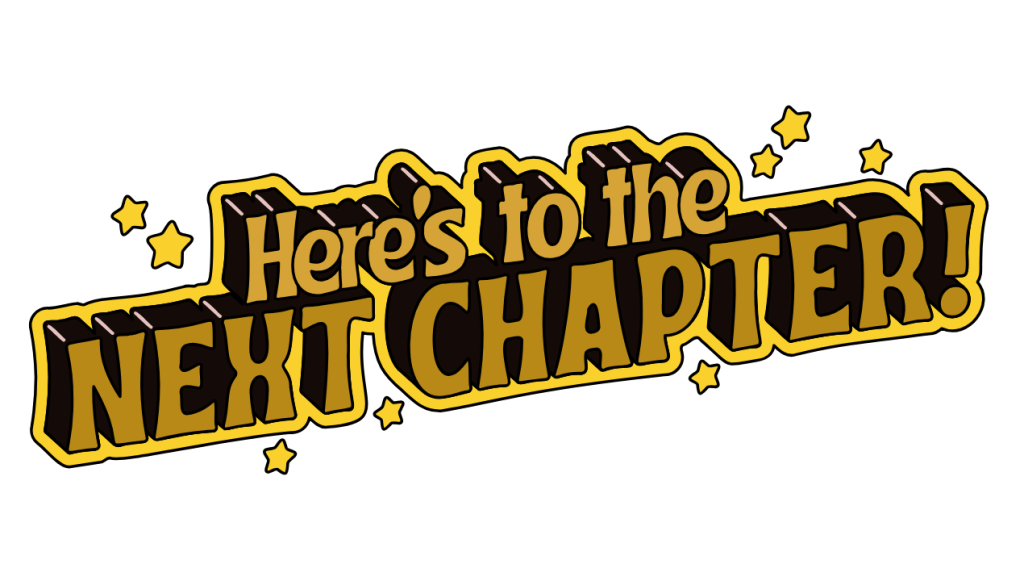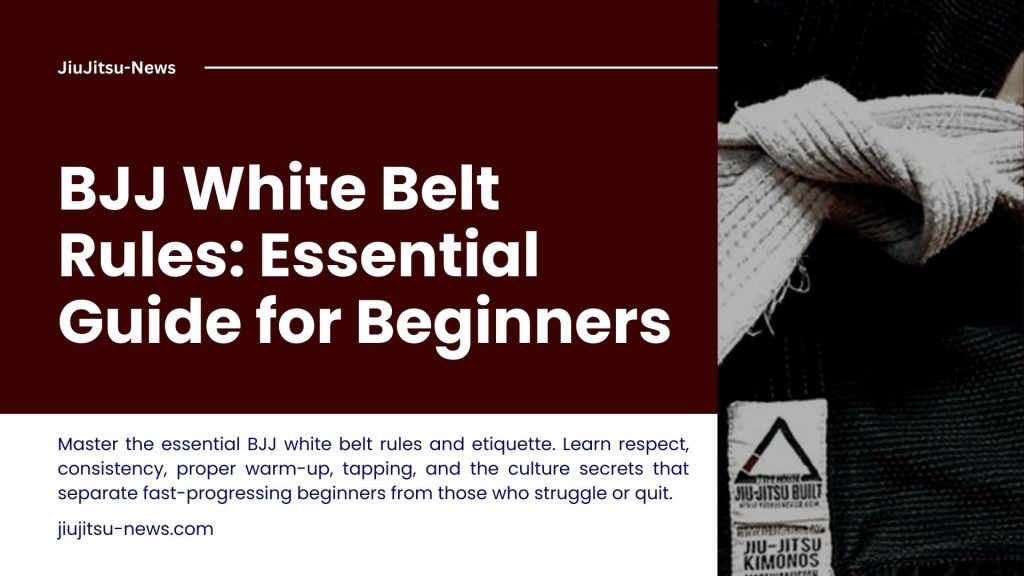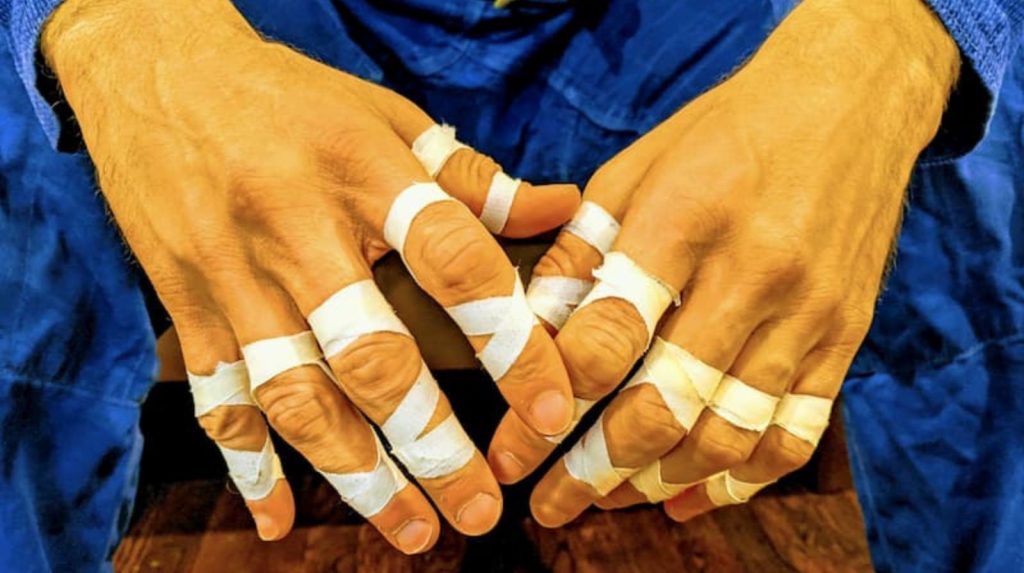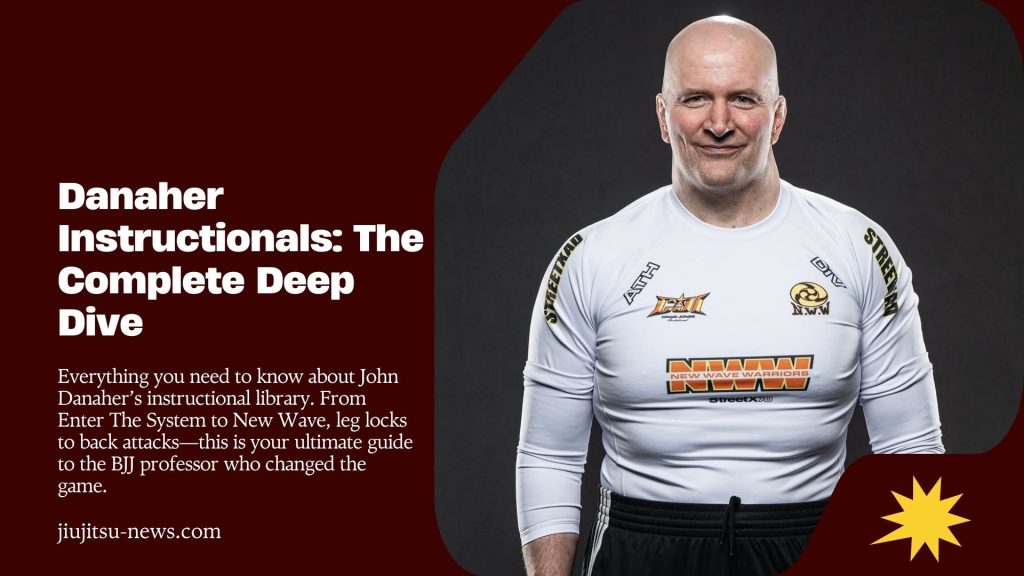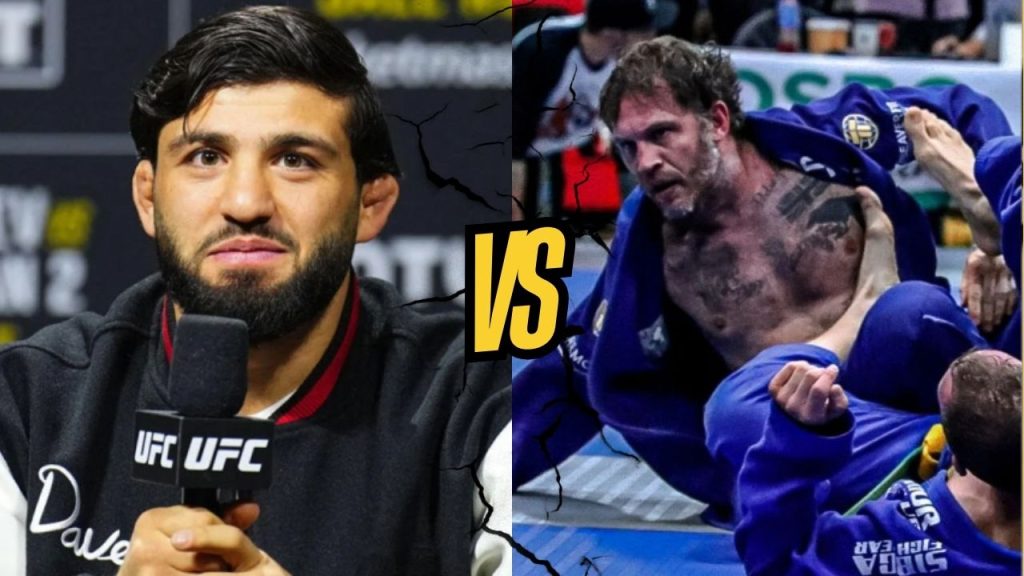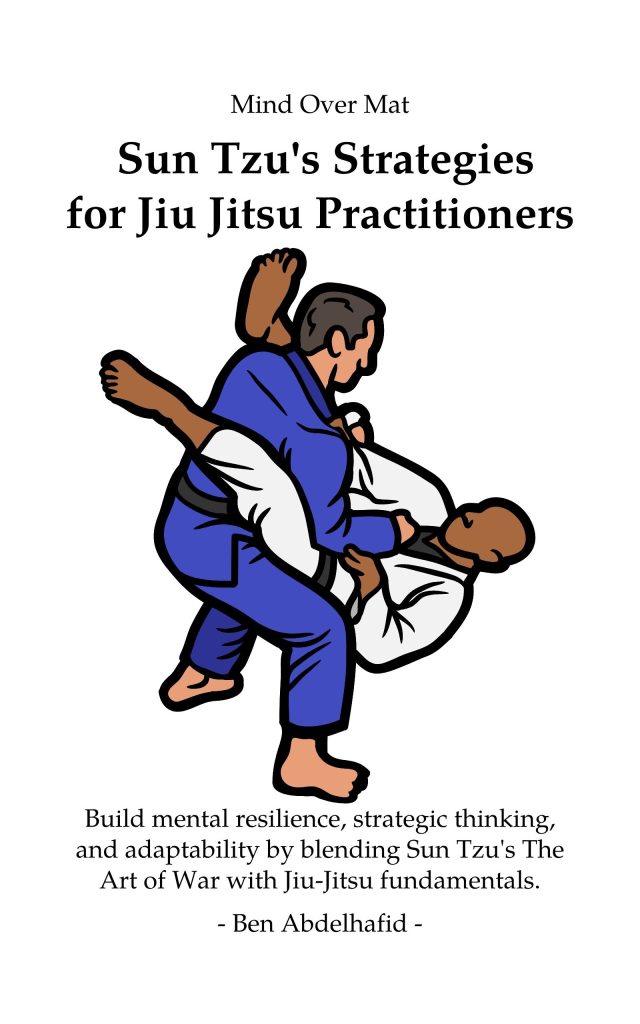
Chapter 2: The Terrain of Jiu Jitsu
The Importance of Positioning
Positioning is one of the most important parts of jiu-jitsu and can make or break a match.
Like the battlefield strategies that Sun Tzu wrote about in “The Art of War,” where a practitioner stands on the mat can give them advantages or disadvantages that change the flow of the fight in a big way.
When practitioners know how important positioning is, they can not only control their own movements, but also tell their opponents what to do.
#An opening for attacks
Positioning well opens up chances for submissions, sweeps, and escapes, showing that jiu-jitsu is an ever-changing mix of strategy and technique.
In the world of jiu-jitsu, positioning is more than just where someone is on the mat; it also includes how their bodies are positioned in relation to each other.
A fighter is more likely to be able to successfully use techniques if they stay in a dominant position, like mount, back control, or side control.
On the other hand, a fighter who is at a disadvantage, like being in someone is guard or on the ground, needs to use defensive moves and escapes.
Understanding these positional dynamics helps people think strategically, which is similar to how Sun Tzu stressed how important terrain and positioning were in battle.
#2: Being Ahead of the Game
“The skilled fighter puts himself in a position which makes defeat impossible,” Sun Tzu famously said.
In jiu-jitsu, this means guessing what your opponent will do next and positioning yourself to be as safe as possible.
This proactive approach to positioning makes people more aware and flexible.
Like a general looking over the battlefield, practitioners learn to read their opponents and know when to move forward or backward based on what is happening.
Being able to think quickly and accurately is important for both competition and self-defense.
3# Stress Extra-Advanced Training
Positioning is important for more than just individual games; it also affects training and development.
For example, positional sparring is something that teachers often stress. In this type of sparring, students focus on certain positions to better understand and use techniques.
This way of training lets people learn the ins and outs of different positions, which helps them build a repertoire of strategies for different situations.
Analyzing the Mat as a Battlefield
When you practice jiu-jitsu, the mat is more than just a place to train. It turns into a battlefield where strategy, technique, and mental toughness come together.
To look at the mat as a battlefield, you need to know a lot about the rules that govern both martial arts and war.
In the same way that Sun Tzu wrote about how important terrain is in “The Art of War,” grappling practitioners need to be aware of how the layout and features of the mat can affect how they fight.
Things like space, grip, and where the opponent is positioned are very important in determining how the fight goes and how well techniques work.
When you think of the mat as a battlefield, positioning is very important.
Here’s why?
1#
A jiu-jitsu practitioner needs to know where they stand in relation to their opponent, just like a general positions his troops to get an edge.
2# To Gain Calmness and Be Confident
The psychological factors that come into play during a match are also very important to consider when analyzing the mat.
Strength of mind is like the morale of soldiers on the battlefield.
No matter how much pressure they are under, a practitioner who stays calm and sure of themselves is more likely to use techniques correctly.
3# Be Ready to Adapt
Adaptability is also needed on the mat, like how a general must respond to changing battle conditions.
Strategies and techniques must change based on how the enemy moves and what their strengths and weaknesses are.
Sun Tzu said that tactics should be flexible because rigid plans can lead to defeat.
When you practice jiu-jitsu, you have to be ready to change your strategy at any time, going from offense to defense depending on what the situation calls for.
Adapting to Different Opponents
In jiu-jitsu, as in Sun Tzu’s “The Art of War,” being able to adapt to different opponents is a very important skill.
Each jiu-jitsu practitioner comes to the mat with their own set of skills, strengths, and weaknesses.
This means that opponents have to stay flexible and aware.
Consider these tips to learn how to deal with different opponents:
1# Having a Flexible and Adaptable Game
Being able to change and adapt is very important and can mean the difference between winning and losing.
You can do better if you can change your game plan based on how your opponent plays.
This is also in line with Sun Tzu’s ideas about how to think strategically.
To come up with a good strategy, you need to know about your opponent’s height, weight, and reach, among other things.
For example, a taller opponent might like guard positions that use their long limbs, while a smaller, stockier opponent might focus on pressure and grappling close up.
2# Being Able to Recognize Your Opponents’ Technical Skills
Recognizing your opponents’ technical skills and preferred techniques is another part of adapting to different opponents.
Some practitioners may be very good at certain sweeps or submissions, while others may rely on positional control a lot.
By looking at their opponents’ habits, jiu-jitsu practitioners can get ready to defend against their opponents’ favorite moves while also looking for holes in their opponent’s defense.
Sun Tzu said that the best way to fight is to guess what the enemy will do and then act in response, turning possible threats into chances to use counter-offensive moves.
3# Being Mentally Adaptable
Mental flexibility is also very important in jiu-jitsu.
Practitioners need to keep their cool and be open to new ideas, especially when problems come up out of the blue during a match.
A sudden change in strategy by an enemy can mess up a well-laid plan and force you to make changes right away.
Jiu-jitsu players can keep doing well under pressure by developing a mindset that is open to change and uncertainty.
When it comes to war, Sun Tzu said that mental toughness was very important. This is also true on the mat, where mental toughness often determines the winner of a match.

